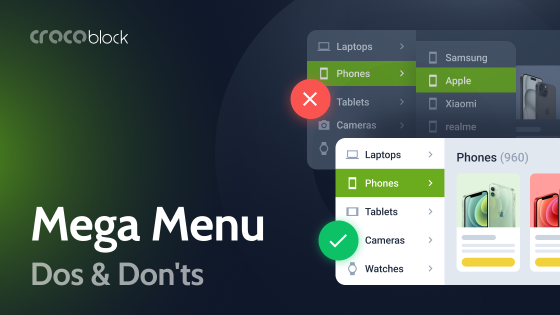All successful businesses are built using careful organization and planning. Without it, tasks build up until they feel unmanageable. It’s therefore essential to adopt organization techniques to streamline your internal processes and help your team thrive under pressure.
Finding the right organizational tool for your team can feel like an overwhelming task, especially when considering the amount of software available to you. Luckily, I’ve narrowed down the top six organizational tools for your team. Say goodbye to disorganized chaos.
But first, why should your team actually adopt an organizational tool?
Why Your Team Should Use Organizational Tools
If you’re still unsure whether you should use an organizational tool, then read these top benefits.
Improve productivity
By putting all your tasks and documents in one easy-to-use platform, you’ll save valuable time that can be better spent working on projects. You’ll also become more efficient when allocating tasks since you’ll be able to see individual workloads and schedules. All documents will be uploaded to one place, meaning you won’t have to flip between folders.
Track progress easily
Most organizational tools allow you and your employees to track your task time to give everyone an up-to-date idea of how long individual projects are taking when tasks are due, and who is assigned. Individuals can see where their priorities lie, which will improve the ratio of deadlines met.
Reduce stress
Taking advantage of an organization tool will give you and your team more spare time to get on with important projects, which will reduce overall stress and increase happiness across the board. No more expensive overtime and missed deadlines.
Better communication
Communication is pivotal to a successful business, especially if your team works remotely. Luckily the majority of organizational tools available have some sort of chat function so that team members can communicate with ease. You’ll also have the option to assign tasks and deadlines so your team can stay up-to-date with their workloads.
Best for on a Budget: Google Calendar
Google Calendar is a powerhouse in the organization space. It’s easy to use, integrates with Google browser, Gmail, and Google Docs, and is also free to use as a standalone app. It’s no wonder that Google Calendar has over 500 million users worldwide.
If you’re often in lots of meetings and events during the day, then Google Calendar is your friend. Using this tool, you can send out meeting invitations which will automatically sync to the right people’s calendars, set reminders for upcoming events, and see a daily or monthly plan of your upcoming schedule.
Key features:
- free to use as a standalone tool;
- calendar syncing;
- easy to use scheduling features;
- multiple device syncing;
- team calendars.
Trustpilot rating: 5
Pros:
- easy to use;
- syncs between devices;
- group calendar options;
- free if only using Calendar features.
Cons:
- the interface is less competent when paired with non-Google software like Teams or Zoom.
Best for Ease of Use: Trello
Trello is an easy-to-use organizational software that has a highly advanced free plan. With features like built-in templates and design tools, Trello allows you to work on marketing, personal tracking, sales, and calendars.
But how?
Trello allows you to organize different tasks quickly by making separate boards. Each team member working on individual projects has access to their own boards. Within this, individuals can create and save their own tasks, attach files and notes, and set deadlines. Stay on track with project status columns and the drag-and-drop feature, so you can see the bigger picture.
Key features:
- built-in templates;
- project status columns;
- automatic due date reminders;
- highly advanced free plans.
Trustpilot rating: 4
Pros:
- highly advanced for a free app;
- design features as well as organizational;
- allows you to create multiple boards for different projects.
Cons:
- A lot of features mean it’s difficult to navigate at first.
Best for Agile Teams: Jira
Jira is designed to help you run projects while upkeeping agile project management methodologies. It incorporates impressive features such as Kanban boards, agile reporting software, and roadmaps so your team can stay on track.
Unlike other organizational tools, Jira integrates with over 3,000 apps, making it perfect for developers. This makes Jira perfect for a technical team running multiple complicated projects and workloads.
Key features:
- organizational roadmaps;
- integration with other software;
- Kanban boards;
- project tracking features.
Trustpilot rating: 3
Pros:
- designed to handle complicated projects;
- organizational roadmaps to keep agile team members on track;
- easy software integration.
Cons:
- lack of customer service;
- troubles with backend software that leaves the platform slow and unusable in some instances;
- unfinished updates.
Best for Task Management: Asana
If your team favors easy-to-use software that prioritizes task management over any other tool, then Asana is the platform for you. Asana is fast, easy, and reliable. There’s no need to spend hours setting up the platform for your team; with Asana, you can get started instantly.
Asana gives users the essential features they need to successfully manage a project, with tools including checklists, due date reminders, tags and color-coded tasks, labeling, and the ability to organize multiple tasks at once.
The platform is also compatible with complicated workflows like Agile, Kanban, and Scrum, so you can customize your tasks by adding additional features.
Key features:
- easy to use task organization;
- project tracking;
- color-coded tags and labels;
- team collaboration availability;
- integration with other third-party tools.
Trustpilot rating: 4
Pros:
- visually appealing with labels and tags;
- integrated Kanban board which makes managing projects simple;
- the easy-to-use platform that can be adopted instantly.
Cons:
- Organizational tools with more features on the market.
Best for Creativity: Canva
If you’re a creative team that often takes on marketing projects, Canva should be your go-to organizational tool. It offers an easy-to-understand design tool where team members can create designs, collaborate on projects, and manage visuals such as social media posts, sales pages, brochures, and more.
Unlike other design organization tools currently available, Canva offers a simple, cloud-based interface, meaning it’s a great tool for collaboration. The templates Canva offers are highly advanced, even when using the free platform option. This tool will no doubt cut the time you or your team spend designing promo material in half.
Key features
- professional templates;
- cloud-based interface for collaboration;
- design creation software;
- easily customize company branding;
- built-in stock photos.
Trustpilot rating: 5
Pros:
- thousands of professional-looking templates;
- easy collaboration thanks to being cloud-based;
- labeled folders allow you to easily organize your designs and creative projects.
Cons:
- if using the free version, your choice of templates is cut drastically;
- not the best for organizing complicated projects with multiple files – only design projects.
Best for Team Communication: Clariti

Clariti is revolutionizing team communication and organization with its AI-powered platform, making it one of the best tools for enhancing productivity. At the heart of Clariti’s effectiveness is its ability to automatically organize emails, chats, documents, and calls into cohesive, context-based threads. This feature ensures that all relevant information is connected and easily accessible, reducing the time spent searching for past communications or files. With integrated event scheduling tools, Clariti enables users to prioritize and streamline their work through intuitive to-do lists and calendar integrations, helping teams stay on top of their responsibilities and deadlines.
Key features:
- automatically organizes all communications into context-rich conversations;
- provides real-time contextual insights by connecting related information;
- seamlessly combines emails and chats into a unified view;
- groups related files by topic for easy access;
- includes screen sharing, voice calls, and task management tools.
Trustpilot ranking: 5
Pros:
- unified communication;
- AI-powered contextual conversations;
- collaboration tools;
- accessible anywhere;
- cost-effective.
Cons:
- no mobile app;
- no video calling.
FAQs
An organizational tool allows you and your team to organize your projects and tasks from one platform to increase productivity.
It allows a team to organize key tasks. These tasks are then stored on the platform and can be accessed by everyone within the team.
It’s important because it allows you to keep track of key tasks to increase productivity.
It depends on the nature of your work. But generally, we would recommend using an organizational tool no matter the size of your team.
Enhance Your Work Life With Organizational Tools
Using an organizational tool is key to getting the most out of yourself and your team. By visualizing your project in one easy-to-use platform, you’re guaranteed to spend less time worrying about meeting deadlines and more time being productive.

